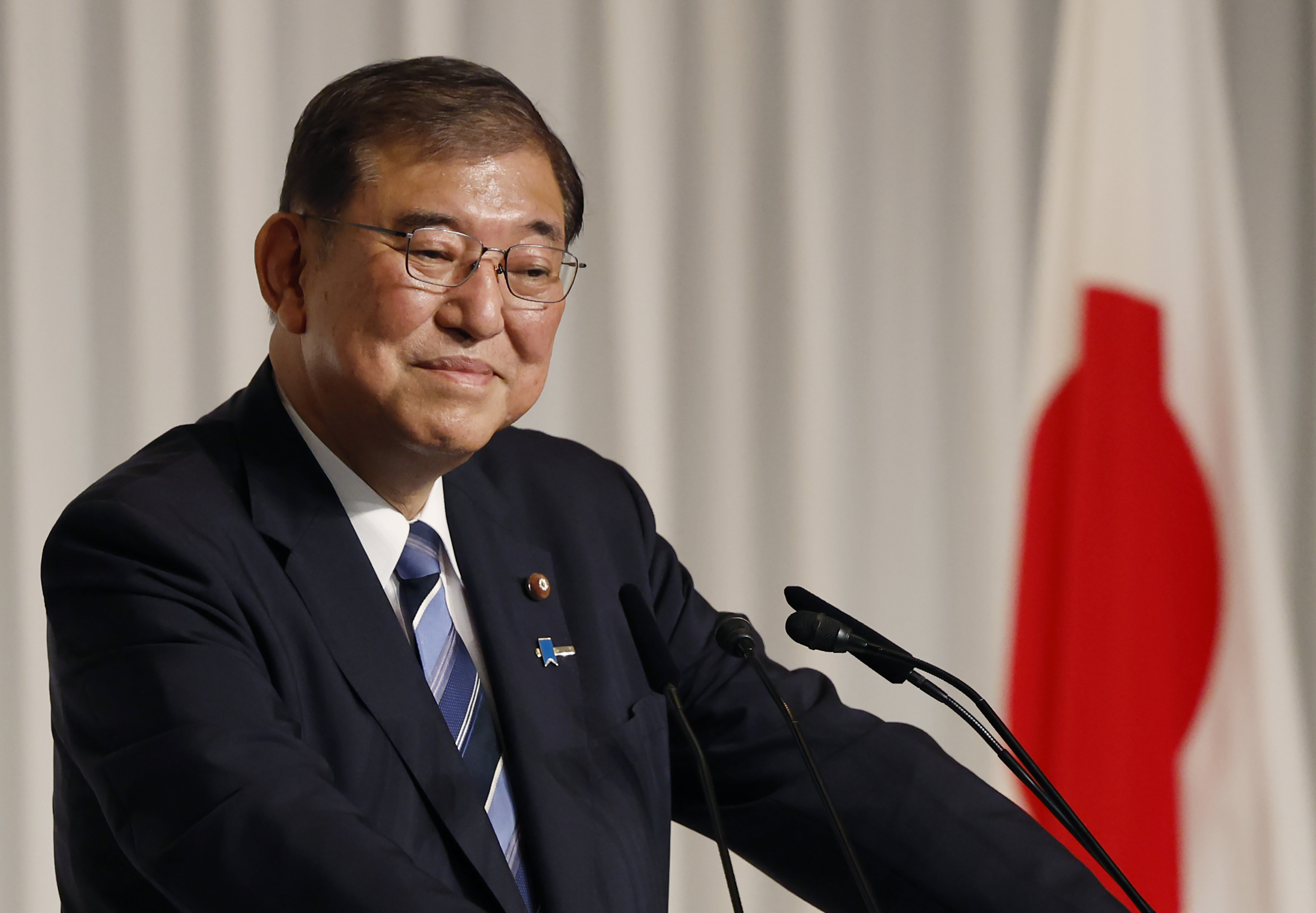Japan’s Prime Minister Shigeru Ishiba is advocating for an “Asian version of NATO” in response to increasing military collaborations among China, Russia, and North Korea.
In recent years, the U.S., Japan, and other regional allies have bolstered their defense ties, forming a “latticework” security strategy under the Biden administration.
This approach includes the Quadrilateral Security Dialogue (QUAD) involving Japan, India, and Australia, as well as the AUKUS defense pact with Australia and the UK, alongside closer cooperation among Washington, Tokyo, and Seoul.
In an op-ed for the Hudson Institute prior to taking office, Ishiba hailed these developments but stressed the urgency of establishing a mutual defense framework akin to NATO. He believes this is crucial for deterring China, particularly regarding tensions surrounding Taiwan.

Kim Kyung-Hoon/Getty Images
“If these alliances are strengthened, we could create a hub-and-spoke system centered around the Japan-U.S. alliance and potentially evolve into an Asian NATO,” Ishiba wrote, warning that “Ukraine today could be Asia tomorrow.”
He also urged a reassessment of the U.S.’s nuclear strategy, citing concerns over Russia’s nuclear collaboration with North Korea, although analysts have found no concrete evidence of such exchanges yet.
However, not all of Ishiba’s cabinet members are on board with the NATO-like concept. Japan’s Foreign Minister Takeshi Iwaya remarked that establishing mutual defense obligations in Asia presents significant challenges.
U.S. officials have echoed this sentiment; Daniel Kritenbrink, the assistant secretary of state for East Asia and the Pacific, referred to the proposal as “premature.” He emphasized ongoing efforts to strengthen existing regional partnerships instead.
China, for its part, perceives efforts like the QUAD and AUKUS as steps toward creating an Indo-Pacific counterpart to NATO. Chinese Foreign Minister Wang Yi criticized these initiatives as counterproductive to regional aspirations in a 2022 briefing.
While a formal security alliance may not be imminent, Ishiba noted advancements in security collaboration under recent Japanese governments. This includes former Prime Minister Shinzo Abe’s reinterpretation of Japan’s constitution for “collective self-defense” and Prime Minister Fumio Kishida’s initiatives to modernize Japan’s Self-Defense Forces and increase defense spending to meet NATO’s 2% benchmark.
In a recent conversation, Chinese President Xi Jinping conveyed to Ishiba that both nations should aim for peaceful relations and cooperative development, emphasizing the need for a stable and constructive China-Japan partnership going forward.
